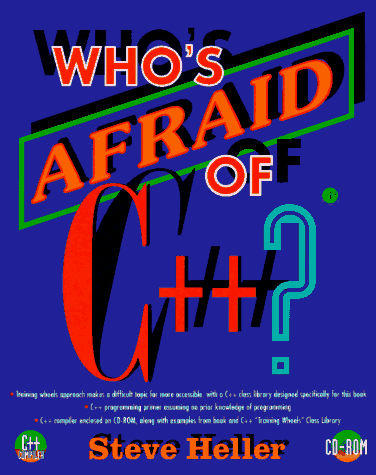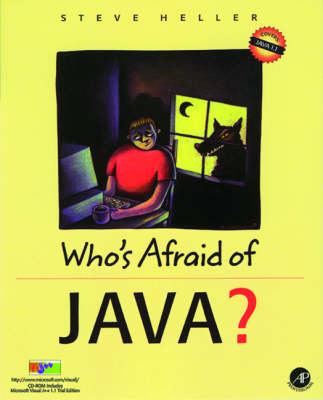Who's Afraid of S.
2 total works
This book teaches you to program in C++, assuming no prior knowledge of programming. The methodology used is to explain the principles of good programming, and then illustrate each of them in the context of a realistic, although simple program. This approach differs from that of the vast majority of C++ books now available, which assume facility with C progamming.
From the Foreword by Edward Yourdon:
"...This is the best technical book I've read since 'Zen and the Art of Motorcycle Maintenance' appeared in the mid-1970s." Computer programming isn't really mysterious, or at least it doesn't have to be when it is explained as clearly and simply as it is in this book. You don't need any prior background in programming to follow Steve Heller's gentle step-by-step path to programming in C++--even experienced programmers can read it without feeling patronized.
From the Foreword by Edward Yourdon:
"...This is the best technical book I've read since 'Zen and the Art of Motorcycle Maintenance' appeared in the mid-1970s." Computer programming isn't really mysterious, or at least it doesn't have to be when it is explained as clearly and simply as it is in this book. You don't need any prior background in programming to follow Steve Heller's gentle step-by-step path to programming in C++--even experienced programmers can read it without feeling patronized.
Presents the fundamentals of Java as an e-mail interchange between a student and instructor. The book teaches the elements of program design, the Java language, and how to create Java Applets. While the emphasis is on writing basic application code that is useful on the Internet, if also addresses some difficult Java programming issues, such as algorithmic thinking, built-in classes, and control expressions.

